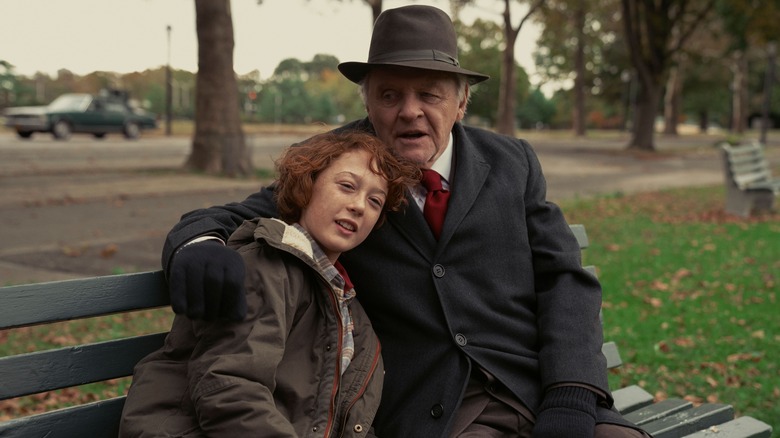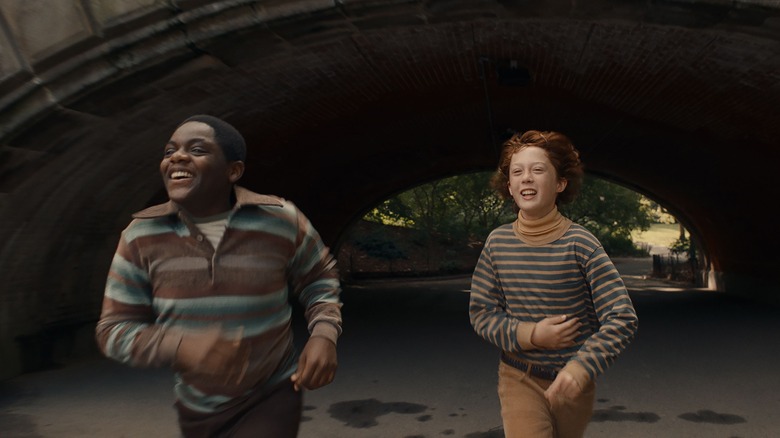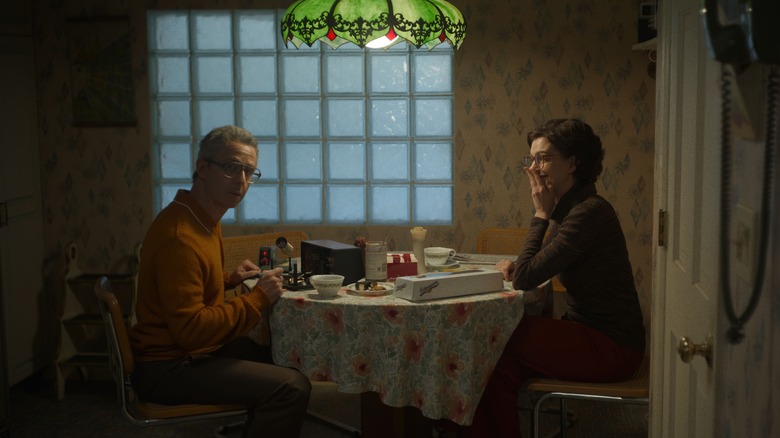Armageddon Time Review: An Apologetic Autobiographical Movie That Challenges Nostalgia [Cannes]
Whether it's Paolo Sorrentino's "The Hand of God," Kenneth Branagh's "Belfast," or Lee Isaac Chung's "Minari," a new wave of autobiographical movies tend to look at the past with heavy doses of nostalgia. Even when they show the nasty parts, there's a fondness to them. That is not James Gray's "Armageddon Time," a movie that has more in common with Alfonso Cuarón's retroactive apology film, "Roma," than Richard Linklater's animated "Apolo 10 ½."
The film is set in the lead-up to the 1980 election, at a time when the country is about to go through a huge political shift, right before kids riding bikes in the suburbs became the most American image since guys with sleek hair driving cool cars. For Paul Graff (Banks Repeta), the director's sixth-grader stand-in, things are going pretty well. His dad (Jeremy Strong) earns a decent living as a plumber while his mom (Anne Hathaway) is president of the PTA, both sets of his grandparents are alive, close, and kind to him, showering him with presents and helping the family get a better future.
Not nostalgia bait
But that is not enough for Paul. Whether he is "a bit slow" like his teachers and parents believe, or whether he just doesn't have the right mind for academia — he wants to be an artist — Paul ends up daydreaming for most of his classes or becoming the class clown. This is how he meets and befriends Johnny (Jaylin Webb), a Black kid and fellow loner who is a target of their racist, abusive teacher. The two instantly bond over their wild and nonconforming dreams (Johnny wants to work at NASA), skip school, and get in all sorts of trouble. Or at least, Johnny does. Whenever they get in trouble, it is Johnny who gets the blame and the punishment, never Paul.
This is what separates "Armageddon Time" from most other autobiographical movies about directors. Rather than just be a nostalgia-driven coming-of-age story about a kid's happy life while some problematic stuff is relegated to the background, Gray's film acknowledges that maybe he was a brat as a kid, that maybe he acted horribly around his parents, his peers, his friends. No one in the character gets away completely free of criticism, as Paul's family is portrayed as liberal, lamenting the election of Raegan as the beginning of the end, while casually dropping racist comments at dinner.
Indeed, there is no romanticism here, no kids on bikes having a good time, no thinking back to simpler times, but an honest, earnest, if blunt, look at the mistakes of the past. Like Cuarón retroactively acknowledging his privilege and offering an apology to the women that raised him, Gray reflects and shows gratitude for the lucky breaks he got in life while trying to reckon with the people he didn't help, the conversations he shouldn't have listened to.
A touching and poignant autobiography
By the end of the film, there is no happy comeuppance, no final lesson to be learned, but a conclusion that mirrors the election around which the film is framed — the haves continue to have, the have-nots continue to not, but maybe someday down the road a young kid will grow up and try to make up for the things he ignored because he was taught that some people get a raw deal in life, and he should stick to his own business. A brief cameo by the Trump family, especially one where Donald Trump's sister Maryanne Trump (played by Jessica Chastain) attends Paul's school to talk about struggling to make something of yourself with hard work, is a hilarious and biting indictment of the American dream and the lies of American exceptionalism.
The one voice of reason and actual lessons, blunt as they may be, is Anthony Hopkins, who continues to have an incredible resurgence over the past few years. Here he is kind, gentle, loving, but with the weight of the past and his struggles as a Jewish man in America following him wherever he goes. Still, it is Jaylin Webb who steals the movie as Johnny, who could've easily become little more than the Black token character that indirectly teaches the white protagonist a lesson, but who Webb infuses with personality and a feeling of surrender that adds poignancy to his character.
"Armageddon Time" suffers from an overly long runtime and from hitting the audience in the head with its commentary, but at a time when nostalgia reigns supreme in filmmaking, this is a rare and very welcome interrogation of the past.
/Film rating: 7 out of 10
"Armageddon Time" premiered as part of the Cannes Film Festival 2022.


